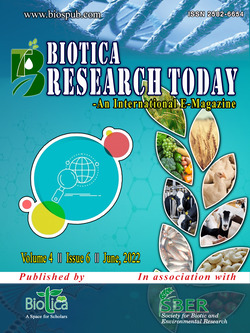
Reverse Breeding: A Novel Plant Breeding Technique
Mohit Sharma*
ICAR-Indian Agricultural Research Institute, Pusa, New Delhi, Delhi (110 012), India
Prashant Vasisth
ICAR-Indian Agricultural Research Institute, Pusa, New Delhi, Delhi (110 012), India
Vaibhav Chittora
Dr. Y.S. Parmar University of Horticulture and Forestry, Solan, Himachal Pradesh (173 230), India
Heerendra Prasad
Dr. Y.S. Parmar University of Horticulture and Forestry, Solan, Himachal Pradesh (173 230), India
DOI: NIL
Keywords: Engineered meiosis, Heterosis, Novel plant breeding technique, Reverse Breeding
Abstract
One of the important insights in plant breeding was heterosis, the observation that hybrid progeny (F1) typically is superior as favourable allele combination of elite heterozygote are lost in next generation due to segregation of traits. Easy preservation of heterozygous genotype is one of the greatest challenges in plant breeding. Hereby, a novel technique reverse breeding meets the challenges of fixation of complex heterozygous. Reverse Breeding generates perfectly complementing homozygous parental lines through engineered meiosis.
Downloads
not found
Reference
Dirks, R., van Dun, K., de Snoo, C.B., van den Berg, M., Lelivelt C.L., Voermans, W., Woudenberg, L., de Wit, J.P., Reinink, K., Schut, J.W., van der Zeeuw, E., Vogelaar A., Freymark, G., Gutteling, E.W., Keppel, M.N., van Drongelen, P., Kieny, M., Ellul, P., Touraev, A., Ma, H., de Jong, H., Wijnker, E., 2009. Reverse breeding: a novel breeding approach based on engineered meiosis. Plant Biotechnology Journal 7, 837-845.
Kumari, P., Nilanjaya, S.N., 2018. Reverse breeding: Accelerating innovation in plant breeding. Journal of Pharmacognosy and Phytochemistry 7, 1811-1813.
Wijnker, E., Deurhof, L., Van, B.J., De Snoo, C.B., Blankestijn, H., Becker, F., Keurentjes, J.J., 2014. Hybrid recreation by reverse breeding in Arabidopsis thaliana. Nature Protocols 9, 761-772.
